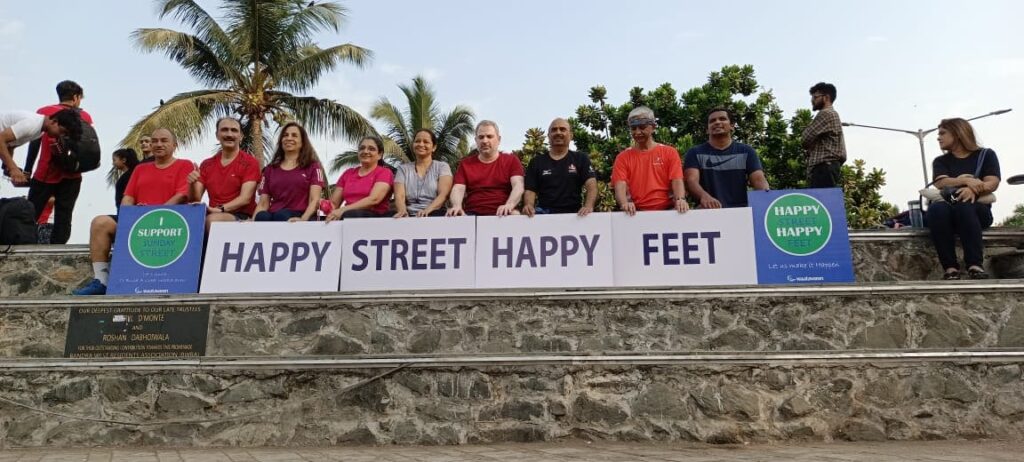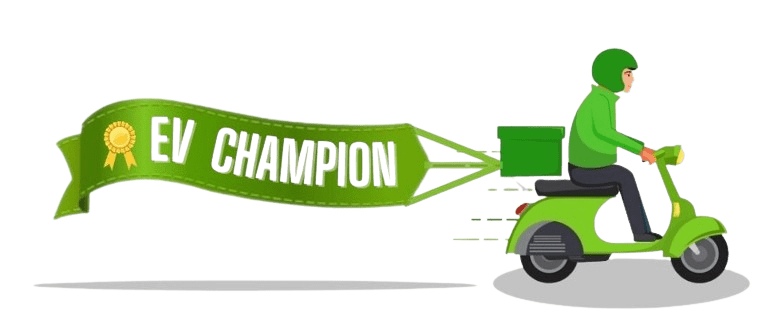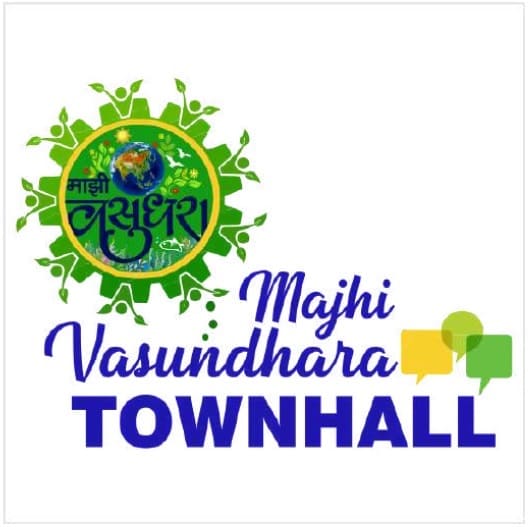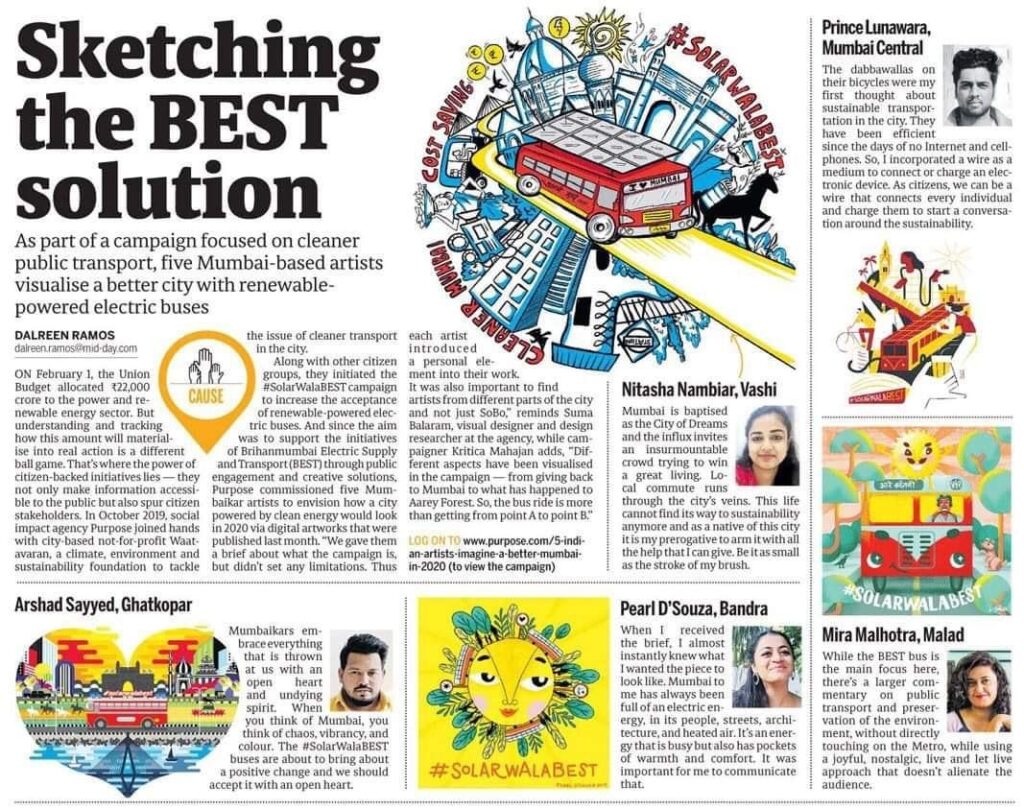Sustainable Mobility
Waatavaran aims to raise awareness about clean transportation options and facilitate the transition towards more environmentally-friendly modes of commuting through various initiatives and campaigns. One of their key focus areas is promoting sustainable mobility solutions for the citizens. Waatavaran has conducted various studies to understand public perceptions and challenges around sustainable transport, such as the Mumbai Dabbawalas survey and perceptions of Mumbaikars on last-mile deliveries, advocacy for better walking/cycling infrastructure through initiatives like the “Sunday Streets” program. Waatvaran also promotes EV by conducting awareness drives through the “EV Champions” video series, and providing inputs to the state’s EV policy. Through evidence-based research, public engagement activities, and multi-stakeholder collaborations, Waatavaran Foundation works towards making mobility more sustainable, accessible and inclusive for Mumbai’s citizens.
1. Mumbai Dabbawalas: An Excellent Model of Sustainable Transport

The “Mumbai Dabbawalas: An Excellent Model of Sustainable Transport” report was launched on November 17, 2022, at the Indian Merchants Chamber (IMC) Building, Churchgate, Mumbai. The event was hosted by the Waatavaran Foundation.
Rahul Narwekar, Speaker of the Maharashtra Legislative Assembly, was the event’s chief guest. Prof. Amita Bhide of the Tata Institute of Social Science (TISS), School of Habitat Studies, Bhagwan Kesbhat, CEO and Founder of the Waatavaran Foundation, Ulhas Muke, President of the Mumbai Dabbawalas Association, and Vishnu Kaldoke, Dabbawalas Spokesperson, were among the other notable visitors. More than 50 dabbawalas and members of the Mumbai Clean Air Action Hub attended the event.
To commemorate Mumbai Dabbawalas’ use of sustainable modes of transportation, a survey was conducted to better understand the conditions of cycling infrastructure, to identify the challenges they face while cycling for a living, and to identify the key motivators for cycling as the primary mode of transportation. The survey was carried out in nine Mumbai locales, including Churchgate, Marine Lines, Grant Road, Parel, Dadar, Bandra, Andheri, Ghatkopar, and Mulund.
2. Young Mumbaikars about Last Mile Deliveries
In a bid to grasp the pulse of young Mumbaikars, Waatavaran embarked on a journey of perception, delving into the realms of last mile deliveries (LMD) and electric vehicles (EVs). Around 2,400 vibrant souls aged 18-35 shared their insights across Mumbai’s diverse landscapes. The survey unveiled an undeniable yearning among the youth for eco-friendly last mile delivery options, especially through the embrace of electric vehicles. It underscored the urgent call for supportive policies, incentives, and infrastructure to ease the transition towards EVs in the delivery sector, in harmony with the state’s EV policy aspirations.

With bated breath, the report on young Mumbaikars’ views on last mile deliveries was unveiled, graced by the esteemed presence of Mr. Vivek Bhimanvar, Transport Commissioner, Maharashtra State. His words echoed the urgency to confront the environmental footprint of last mile deliveries, applauding Waatavaran’s diligent efforts in conducting this profound study. The government’s unwavering commitment to fostering sustainable transportation solutions, notably EV adoption in last mile deliveries, was reiterated.

The stage was set for a riveting exchange as luminaries from varied backgrounds took their seats. Dr. Ratoola Kundu, from Tata Institute of Social Sciences (TISS), Mumbai, shed light on the social and environmental ramifications of last mile deliveries, advocating for inclusive policies and stakeholder engagement. Mr. Kaustubh Gosavi, representing the World Resources Institute (WRI), delved into sustainable urban mobility solutions, extolling the virtues of electric vehicles and innovative business models. Ms. Sohana Debbarma, a PhD Scholar from Indian Institute of Technology (IIT) Bombay, offered a technical perspective on EV integration and the imperative of robust charging infrastructure.
The report launch and panel discussion became a melting pot of ideas, uniting stakeholders in a quest for actionable solutions. It illuminated the shared responsibility of policymakers, businesses, academia, and citizens in steering Mumbai towards cleaner and more sustainable delivery practices.
3. Sunday Streets
Sunday Streets was a Mumbai Police led social initiative that aimed to get urban communities to reclaim their streets and use them in active, healthy, and socially inclusive ways, and was a unique opportunity for communities to come together and be physically active in their city. The unprecedented support for the initiative has led to the police to expand the programme to 12 locations from 3 streets. Waatavaran Foundation used this platform to make citizens aware of ‘’Sustainable Transportation’’. Waatavaran Foundation built a campaign with the aim to improve and prioritise non-motorized transport especially Walking. To improve the walking infrastructure for pedestrians, the city needs to assess the condition and availability of footpaths and suitable measures shall be taken to improve the same. Through this campaign Waatavaran has engaged more than 1000 citizens through fun activities and discussion on pedestrian friendly future through this initiative. Following strategies are used to spread awareness in 9 sundays by us:
- Chai pe Charcha
- Giant Snake and ladder game
- Gaint Monopoly Game- ‘Road to Blue Sky’
- Other Interactive games on air pollution(Pollutants v/s citizens)
- Pledge activity
- Music concert on air pollution

Waatavaran Foundation did a perception study of 260 citizens present at Sunday street venues with the objective to understand the perception of the Mumbaikars about the ‘Sunday Streets’ initiative. 260 citizens filled an online questionnaire using the Kobo app. From this study, we found that Mumbaikars think Sunday Street should happen every Sunday and Sunday Streets should be replicated in the other streets of the city. Also Mumbaikars suggested converting some streets to Sunday Streets permanently and they believe that Sunday street is a model to create car-free spaces in Mumbai. After finalising the survey report, as the next step team Waatavaran spoke to each and every Mumbai Clean Air Action Hub member and shared the key highlights of the report. We also visited some of the MLAs in Mumbai with the letter endorsed by hub members.

4. EV Champions
Waatavaran Foundation aims to raise awareness about clean and sustainable mobility and to make the EV transition inclusive. This is a series of 4 interviews of citizens from diverse social backgrounds to promote sustainable mobility by sharing their own experiences of using electric vehicles. These citizens range from Brihanmumbai Electric Supply and Transport (BEST) drivers to citizens who are championing the cause of clean mobility in different ways.

Following are some links to videos of individuals who use electric vehicles and are happy to share their experiences:
Electric vehicles do not burden the environment, as well as our pockets! The journey with new electric buses in the BEST fleet is comfortable and highly efficient. As of now the fleet consists of around 400 electric buses and the administration is working on conversion of the entire fleet to electric buses. Check this amazing electric story of BEST buses of Mumbai.
Link to the Video: https://youtu.be/fDMBVvCxDBw
Another EV champion is a resident of the Solar Family of Pune who lives their life using solar energy and electric vehicles. Their house electricity runs on solar, they charge their EVs on solar. Apart from one-time investment on batteries, their expense of charging is zero. Hence, they are living a satisfactory life saving the environment from Air Pollution and Noise Pollution.
Link to the Video: https://t.co/3zMIEbVQyE
Dabbawalas are an exclusive example of a sustainable mode of last mile delivery. They have been using bicycles for 130 years for delivering tiffin. Having a tradition of zero emission deliveries and plastic free deliveries with limited resources they have chosen another mode of sustainable mobility ensuring their tradition of zero emission deliveries Here is a story which every last mile delivery company must replicate in their vehicle fleets.
Link to the video: https://youtu.be/-JS_Yo8zITM
Two brothers, Nuruddin and Mohammed Gilitwala have been using EV since 2016, and have come up with an idea to convert two wheelers to Electric Vehicles through a conversion kit. They also shared their experience on using the electric vehicles in 2016 compared it with their experience with the new electric vehicles we have nowadays. Instead of scrapping two wheelers whose lifespan has ended and sending them to landfills they promote an idea of converting two wheelers to electric vehicles.
Link to Video: https://www.youtube.com/watch?v=HwsPIJlwLCI
5. Town Hall Electric Mobility
The government of Maharashtra rolled out an updated Electric Vehicle (EV) policy while dealing with the pandemic, industry experts, civil society and representatives of the Maharashtra Transport and Environment departments came together for virtual discussion on May 27, 2021 to develop recommendations in order to build a roadmap for the effective implementation of the EV policy. The focus of the town hall was to understand the role of electric vehicles to address sustainable and green recovery from the pandemic impact on the state economy and jobs, steps needed to enhance high quality and extensive charging infrastructure complementary to increasing the visibility of EVs, potential of government commitment to convert all state-owned vehicles to electric by 2025 for a ripple effect in the wider electric vehicle ecosystem in the state, and finally draw up recommendations as inputs incorporated in the state climate action plan and EV policy roadmap.

6. Solarwala BEST

The Solarwala BEST campaign aimed to raise awareness and garner support for the transition towards cleaner and renewable energy-powered public transportation in Mumbai. As part of this campaign, five Mumbai-based artists have visualized a better city with renewable-powered electric buses through their artworks. The campaign aimed to increase the acceptance of renewable-powered electric buses by showcasing different artistic perspectives. The artists had incorporated personal elements and explored various aspects of how renewable energy-based transportation can benefit the city.
The artists featured in the image are Prince Lunawara, Nitasha Nambiar, Arshad Sayyed, Pearl D’Souza, and Mira Malhotra. Each artist has shared their unique interpretation and connection to the campaign’s vision of sustainable transportation through their artwork.
Waatavaran Climate Environment & Sustainability Foundation is a not-for-profit company incorporated and registered under Section 8 of the Companies Act, 2013. All donations made to Waatavaran are eligible for income tax deduction under Section 80G of the Income Tax Act.
Contact Us
REGISTERED ADDRESS
L-4/906, Swapnapurti, Sector 36, Kharghar, Navi Mumbai – 410210, Maharashtra, India
OFFICE ADDRESS
59/A, 1st Floor,
Kamgar Nagar Road,
Near Shetty Infra Services,
Kurla East,
Mumbai, Maharashtra – 400070
Email: [email protected]
Mobile: +91-8850903025 / +91-9221250399
Copyright © 2022 | Site By: Creatiwitty

